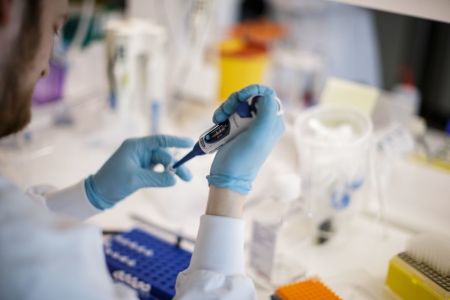Hydroxychloroquine saved coronavirus patients' lives, study shows

A new observational study from Michigan shows that hydroxychloroquine, primarily an anti-malarial drug which received renewed attention recently after President Trump talked about its success in treating the coronavirus, has worked to save lives.
“The results of this study demonstrate that in a strictly monitored protocol-driven in-hospital setting, treatment with hydroxychloroquine alone and hydroxychloroquine + azithromycin was associated with a significant reduction in mortality among patients hospitalized with COVID-19,” said the study, published in the International Journal of Infectious Diseases this week.
Titled “Treatment with Hydroxychloroquine, Azithromycin, and Combination in Patients Hospitalized with COVID-19,” the study found that the mortality rate for patients who were not administered either hydroxychloroquine or the antibiotic azithromycin was 26.4%, but the mortality rate for patients who were given only hydroxychloroquine was much lower, at 13.5%, The People’s Pharmacy, which airs on NPR, noted.
The study further found that the mortality rate for patients who had received azithromycin alone was 22.4%. And when azithromycin was given along with hydroxychloroquine, the mortality rate was 20.1%.
The authors also said the results required “further confirmation in prospective, randomized controlled trials that rigorously evaluate the safety, and efficacy of hydroxychloroquine therapy for COVID-19 in hospitalized patients.”
“Considered in the context of current studies on the use of hydroxychloroquine for COVID-19, our results suggest that hydroxychloroquine may have an important role to play in reducing COVID-19 mortality,” they added.
The study included 2,541 consecutive patients with a median age of 64 who were hospitalized with a COVID-related admission at Henry Ford Health System in Southeast Michigan from March 10 to May 2.
Pointing to media reports on its success in treating the coronavirus, the president earlier said he had been taking hydroxychloroquine, along with Zithromax and zinc, for a few weeks after members of the White House staff contracted the virus. Trump was criticized for calling hydroxychloroquine a “wonder drug” following media reports of nurses taking the drug in an attempt to stave off the infection and doctors successfully treating their patients with the medication.
An Oxford University research with 1,542 COVID-19 patients, published last month, had found no “beneficial effect” of hydroxychloroquine. “We have concluded that there is no beneficial effect of hydroxychloroquine in patients hospitalized with COVID-19,” professors Peter Horby and Martin Landray, chief investigators of the study, wrote. “We have therefore decided to stop enrolling participants to the hydroxychloroquine arm of the RECOVERY Trial with immediate effect.” Instead, Horby said in a June 16 statement that the steroid dexamethasone was shown to reduce the risk of death from COVID-19 by up to one-third.
Also last month, two studies from influential medical journals — The New England Journal of Medicine and The Lancet — were retracted because auditors were not able to access all of the necessary information to verify the data. The studies had purportedly found that COVID-19 patients treated with hydroxychloroquine and chloroquine were more likely to die or suffer dangerous side effects, or did not benefit from treatment with hydroxychloroquine.
But an investigative report from The Guardian later revealed that the studies were based on flawed data from the healthcare analytics company Surgisphere. The World Health Organization and several national governments had altered their COVID-19 policies based on the faulty data.
The company claimed it obtained data from over 1,000 hospitals from around the world, which formed the basis of the now-retracted studies. The journals requested that the studies be withdrawn because Surgisphere failed to explain its data and methodology. The Guardian investigation found that employees of Surgisphere also had questionable credentials.
The two studies led the WHO to abruptly halt the hydroxychloroquine arm of its global trials.
Meanwhile, the WHO has also backtracked on its claim that it was alerted about the coronavirus outbreak by China.
The WHO this week quietly updated its “Timeline of WHO’s response to COVID-19” after “the House Foreign Affairs Committee Republicans’ mid-June Interim Report on Origins of COVID-19 Pandemic (led by ranking member and China task force Chairman Rep. Michael McCaul of Texas), concluded that ‘despite public reporting to the contrary ... China never notified the WHO about the outbreak in Wuhan.’ The change was spotted by McCaul and first reported by the Washington Free Beacon,” The Washington Examiner noted.
“I’m glad to see the WHO and the Chinese Communist Party have both read my interim report on the origins of the pandemic and are finally admitting to the world the truth — the CCP never reported the virus outbreak to the WHO in violation of WHO regulations,” McCaul was quoted as saying. “The question now is whether the CCP will continue their false propaganda campaign that continues to claim they warned the world or whether they will come clean and begin to work with the world health community to get to the bottom of this deadly pandemic.”





















